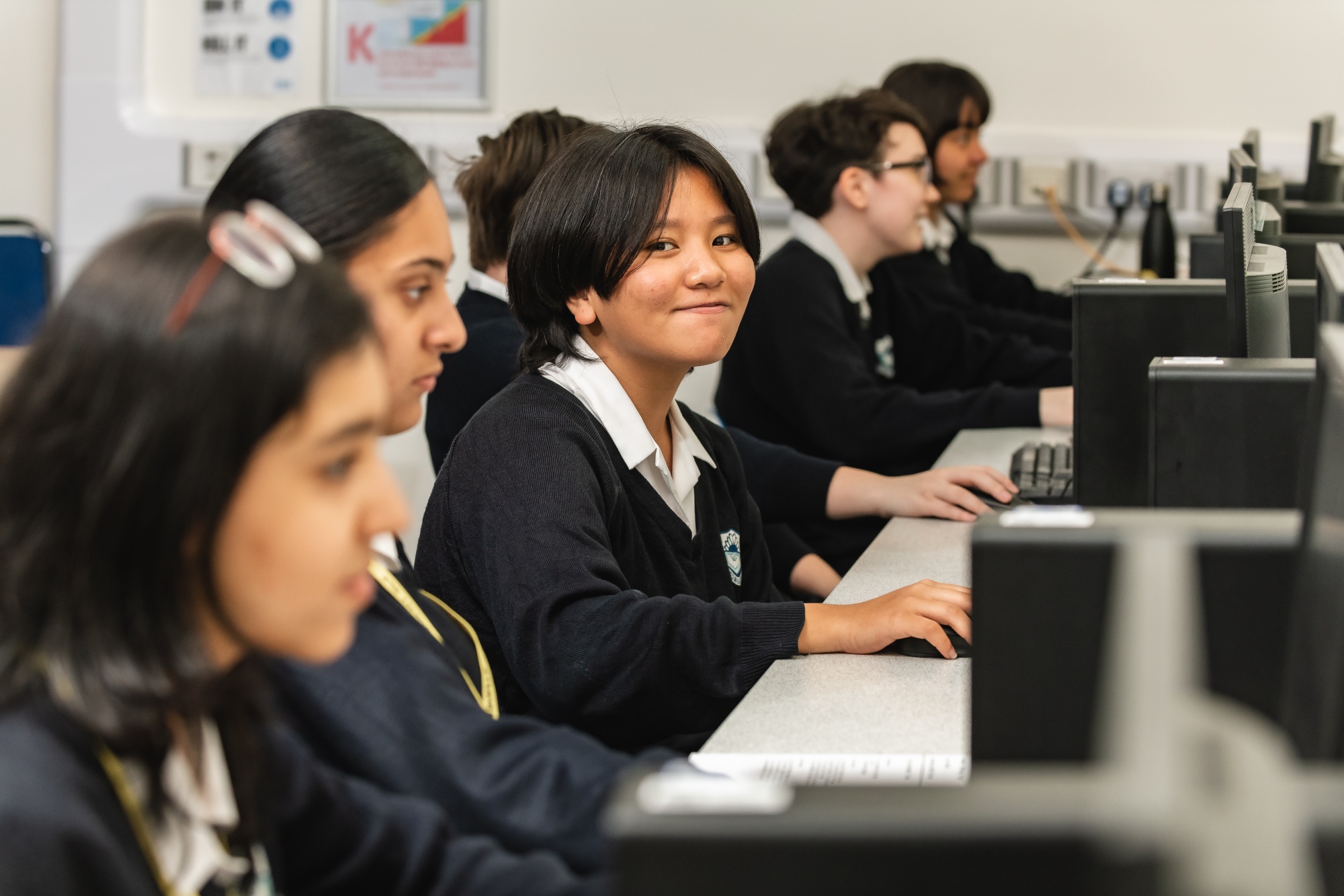Computing
Head of Department: Rakhi Udainiya
The aim of the GCSE Computer Science curriculum is to equip students with a deep understanding of the principles and practical applications of computing. This course will foster critical thinking, problem-solving skills, and the ability to think logically, allowing students to understand the impact of technology on the world.
By the end of KS3- Students should have developed a range of foundational skills across various topics such as digital graphics, animation, spreadsheets, and Python programming and can make wise decision for GCSE options.
By the end of KS4- students should be well-equipped with the skills and knowledge necessary to independently design, build, and optimize solutions to a wide range of problems. They will also possess a deeper understanding of how computers function at a fundamental level and have developed a strong proficiency in Python programming.
Content
Year 7 – Digital Literacy, Online Safety, Computer Systems, Spreadsheets, Computational Thinking, Programming (Scratch)
Year 8 -Graphic Design, Programming Turtle, Programming Python, Animation, Representing Data, Machine Learning
Assessment
Students are assessed each half term followed by BOOST task
Homework
Students receive a Homework Booklet with different tasks to complete. The booklet must be submitted at the end of each term.
How Parents and Carers Can Support
Parents and carers can support KS3 computing students by encouraging curiosity, providing a quiet space for studying, and helping with homework and projects. They can promote problem-solving skills, celebrate achievements, and talk about online safety. Staying involved in what students are learning and introducing them to tech careers or extra activities can also help build interest and confidence in computing.
Additional Support Available/Useful Links
Reading List
- "Python for Kids: A Playful Introduction to Programming” by Jason R. Briggs
- “The Ultimate Guide to Making Video Games” by Rachel Coleman
- “Coding for Kids: Python” by Adrienne B. Tacke
- “Super Scratch Programming Adventure!” by The LEAD Project
- “DK Computer Science: A Complete Introduction” by DK
- “Girls Who Code: Learn to Code and Change the World” by Reshma Saujani
- “The Art of Computer Programming” by Donald E. Knuth
Year 9, 10 and 11
Exam board and syllabus code:
Computer Science – OCR /J277
Content
The OCR GCSE Computer Science course for KS4 covers key areas such as computer systems, including CPU, memory, and storage; algorithms and problem-solving techniques like searching, sorting, and decomposition; programming concepts such as variables, loops, and functions, with a focus on Python; data representation through binary and hexadecimal systems, as well as images and sound; computer networks, protocols, and cybersecurity; and ethical, legal, and environmental issues in computing. Students will also engage in practical programming tasks, including a project to design, develop, and test software, preparing for both written exams and practical assessments.
Assessment
The OCR GCSE Computer Science J277 course is assessed through two papers:
- Paper 01: Computer Systems (Written Exam)
Weighting: 50% of the qualification.
Duration: 1 hour 30 minutes.
- Paper 02: Computational Thinking, Algorithms, and Programming (Written Exam)
Weighting: 50% of the qualification.
Duration: 1 hour 30 minutes.
Homework
Homework is set once a week at KS4. These homework tasks can take various forms and will be fully explained to students by class teachers and set on Edulink.
How Parents and Careers Can Support
Parents and careers can support individuals by providing guidance, encouragement, and resources. Parents play a key role in offering emotional support, setting boundaries, and fostering a growth mindset, while careers can provide professional mentorship, training, and networking opportunities. Together, they help individuals navigate challenges, build confidence, and achieve personal and professional success.
Additional Support Available/Useful Links

